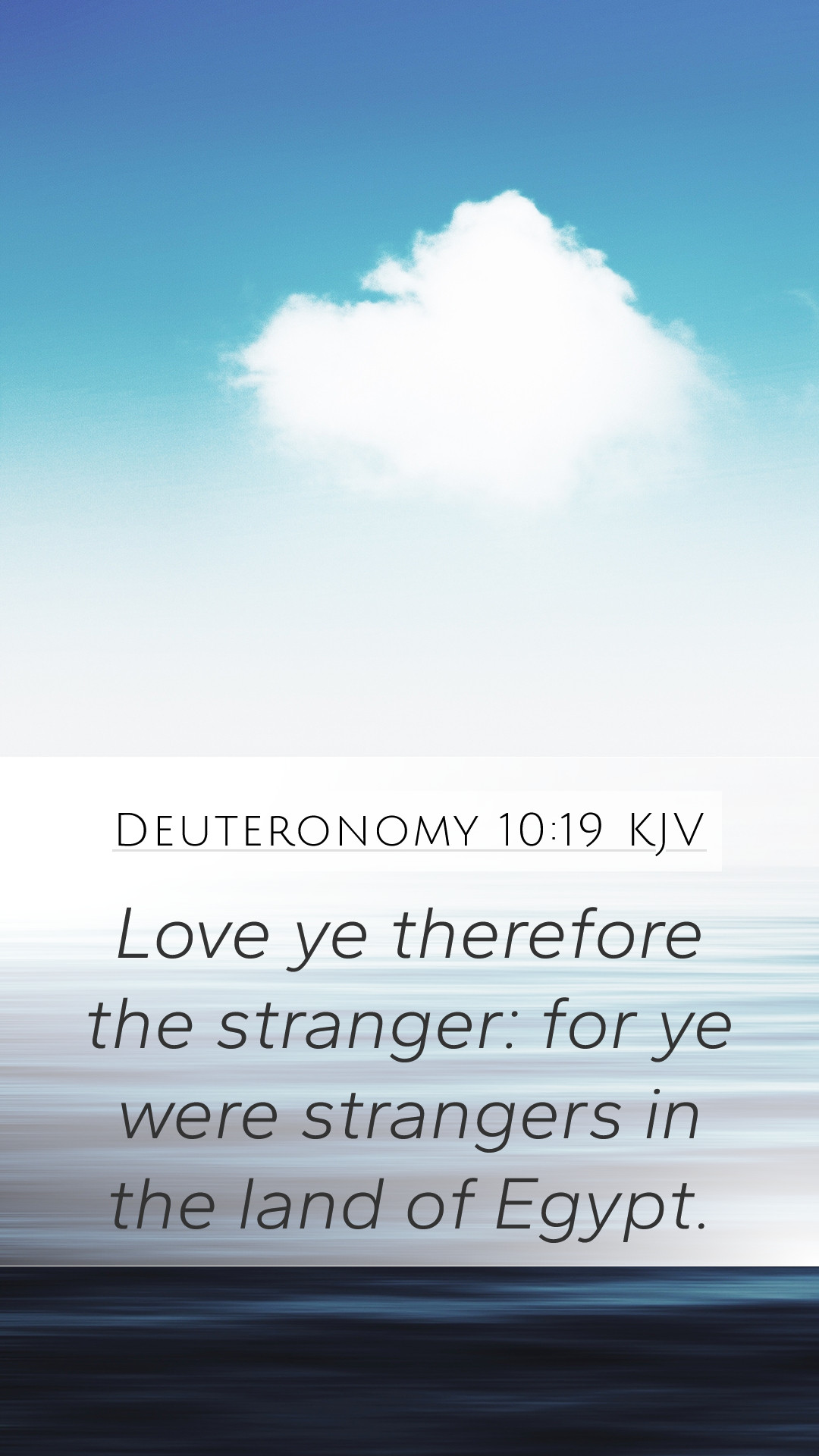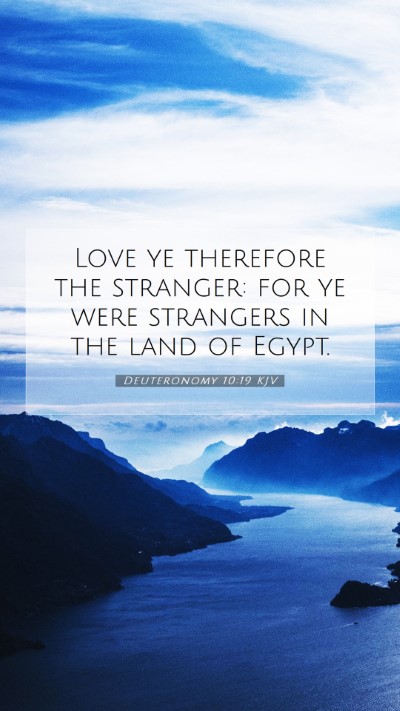Understanding Deuteronomy 10:19
Bible Verse: “Love ye therefore the stranger: for ye were strangers in the land of Egypt: I am the LORD your God.”
Overview of Deuteronomy 10:19
Deuteronomy 10:19 is a poignant exhortation from Moses to the Israelites, urging them to show love and kindness to strangers. This command is rooted in the Israelites' own experience of being strangers in Egypt, illustrating the importance of empathy and compassion in their interactions with others.
Insights from Public Domain Commentaries
Matthew Henry's Commentary
Matthew Henry emphasizes that this command reflects God’s own character in showing mercy. He notes that the Israelites were to remember their own past suffering and oppression in Egypt, which should motivate them to treat others justly and kindly. By loving strangers, they honor God’s all-encompassing love and mercy.
Albert Barnes' Notes on the Bible
Albert Barnes points out the social and ethical implications of Moses' instruction. He argues that the call to love strangers underscores the necessity of inclusivity within the Israelite community. This love is not merely sentiment but is reflected in actions that provide support and protection to those who are vulnerable or marginalized.
Adam Clarke's Commentary
Adam Clarke discusses the theological significance of the verse, linking the concept of loving strangers to the core tenets of the faith. Clarke suggests that the Israelites’ unique covenant with God implies a responsible stewardship over how they treat others. The command serves as a reminder of their identity as a chosen people tasked with showcasing God's justice and kindness.
Key Themes and Applications
- Empathy and Compassion: Understanding the pain of being a stranger fosters empathy, urging believers to look beyond their personal experiences.
- God’s Covenant: The connection to God's covenant highlights the ethical responsibilities that come with divine favor.
- Inclusivity in Community: The command serves as a foundational principle for creating inclusive communities that reflect God's love.
Practical Applications
For contemporary readers, Deuteronomy 10:19 calls for practical applications in daily life:
- Engaging with Strangers: Actively look for opportunities to help those who are new or different in your community.
- Educating Others: Use personal narratives of struggle to educate one another about the importance of kindness and understanding.
- Promoting Justice: Advocate for policies that protect and support marginalized groups.
Historical Context
The historical backdrop of this verse is significant as it reflects the social structure of the ancient Near East, where foreigners often faced distrust and hostility. Recognizing the Israelites' own history as sojourners in Egypt serves to highlight the transformative power of memory and gratitude in shaping ethical behavior.
Related Bible Cross References
- Leviticus 19:34: “But the stranger that dwelleth with you shall be unto you as one born among you, and thou shalt love him as thyself; for ye were strangers in the land of Egypt: I am the LORD your God.”
- Exodus 22:21: “Thou shalt neither vex a stranger, nor oppress him: for ye were strangers in the land of Egypt: I am the LORD your God.”
- Matthew 25:35: “For I was hungry, and ye gave me meat: I was thirsty, and ye gave me drink: I was a stranger, and ye took me in.”
Conclusion
In summary, Deuteronomy 10:19 serves as a vital reminder of the importance of kindness and compassion toward others, especially those who are different or in need. Through a synthesis of insights from Matthew Henry, Albert Barnes, and Adam Clarke, we can deepen our Bible verse understanding and apply these principles within our modern lives.
Further Bible Study Resources
For those interested in deepening their Bible study insights, we recommend exploring various Bible study resources and Bible study lessons that focus on the themes of hospitality, empathy, and justice in the Scriptures.


